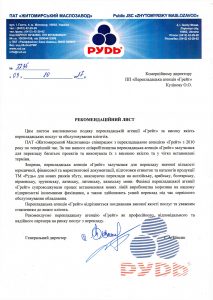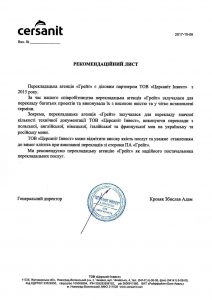Notarization of Translation
The translation agency “Great” provides the service of notarization of translation (the verity of translator’s signature).
- ISO 2384
- DSTU 4309:2004
- BRANCH STANDARD STTU APU 001-2000
Translation can be notarized in two ways:
- Notarization of a translator’s signature.
In this case the translation is bound to the original of the document or to its copy.
- Notarization of a photocopy (copy) and a translator’s signature.
In this case the translation is bound to a document’s copy. Herewith apart from a fidelity of translation the notary also certifies that the copy corresponds to the original and places a stamp “Copy” or “Photocopy” on it.
Notarization can be applied only to official documents. Translation of private correspondence, manuals, instructions, articles and informational materials can be certified only by the agency’s seal.
The list of documents to be notarized:
- agreements, contracts and covenants;
- powers of attorney;
- statements;
- certificates;
- incorporation documents;
- references;
- identity documents;
- diplomas;
- passports;
- accounting balance-sheets;
- employment record books etc.
Remember that all the documents must be executed in the proper way.
Notary’s requirements to documents:
In most cases the original of the document is required.
The document must contain clear document title and organization that issued it.
The document must contain the signatures of officials empowered to issue the documents, the organization’s seal, reference number and date.
If the document consists of more than one sheet, it has to be bound and sealed.
The documents issued by foreign governmental authorities must contain the stamp “Apostille” or stamp of consular legalization.



